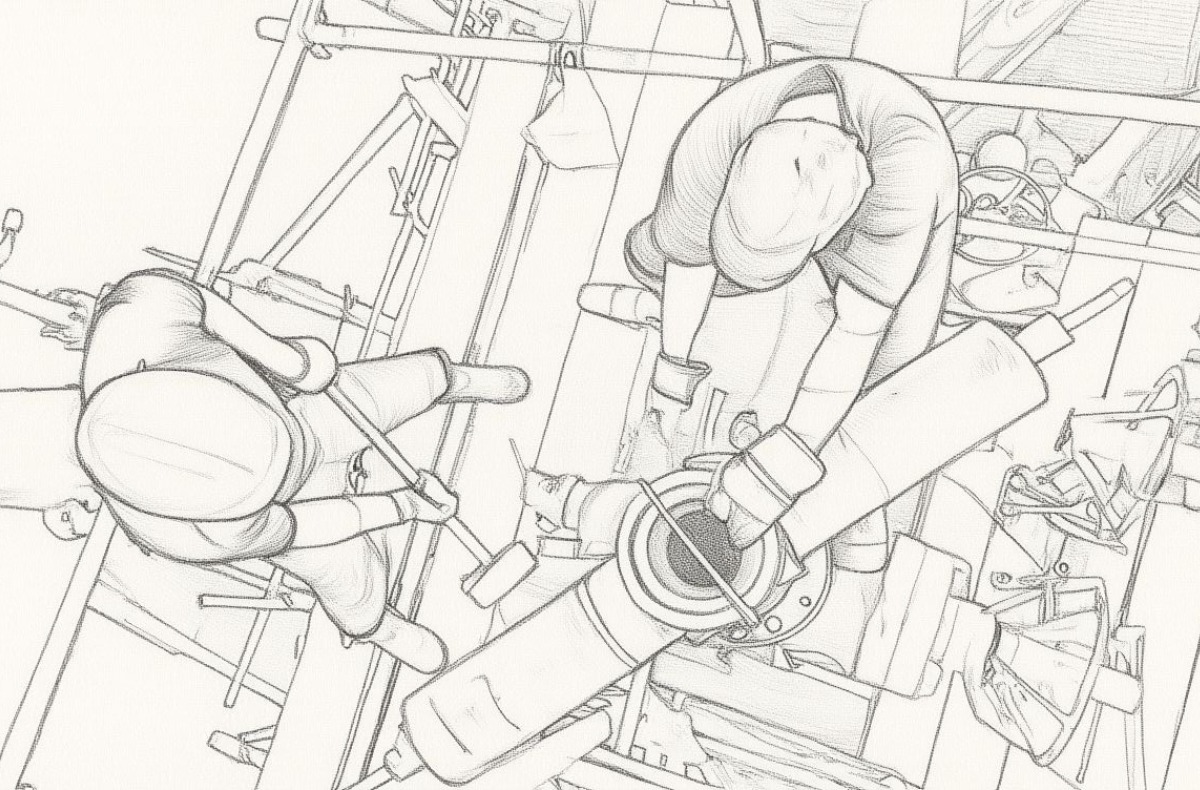Over the past three days (August 19–21, 2025), multiple scenes of protests, strikes, and deadly workplace incidents have been reported across the country. These events once again highlight the depth of the livelihood crisis, denial of rights, and job insecurity facing Iran’s workers.
Strikes and Protests in the Oil Industry
- On Tuesday, August 19, official employees of South Pars, together with their families, held their third protest rally. They challenged discriminatory policies, demanding the removal of the wage cap and full implementation of Article 10 of the Oil Ministry Law.
- At the same time, 90 workers from Phase 14 of South Pars went on strike and gathered outside Kangan’s governor’s office to protest their mass dismissal. The workers stressed that after years of tough labor, they are now left unemployed without any livelihood guarantees.
- On Friday, August 21, official employees of the Offshore Oil Company also held protest gatherings at operational platforms, calling for fundamental reforms in their wages and benefits.
These events show that protests in the oil industry—whether from permanent or contract workers—are expanding daily, rooted in the government’s poverty-producing and discriminatory policies.
Strikes in Petrochemicals and Other Livelihood Protests
- On Wednesday, August 20, contract workers at Razi Petrochemical in Mahshahr entered the twelfth day of their strike, demanding an end to discrimination and wage equalization with other petrochemicals. At the same time, permanent staff of the same company also gathered outside the governor’s office.
- Municipal workers in Bandar Mahshahr and in District Two of Zahedan staged protests in recent days over several months of unpaid wages.
- Workers at fuel stations in Tabriz and marble mine workers at Chah-Morgh in Dehbid, Fars Province, continue to face crises due to unpaid wages.
Death and Repression
- On Wednesday, August 20, a qanat digger in Neyshabur lost his life after a tunnel wall collapsed, a result of unsafe working conditions.
- On Thursday, August 21, Reza Shahbakhsh, a 21-year-old fuel carrier from Sarjangal (Zahedan), was shot at in Khash. His car overturned and caught fire, leading to his death.
- At the same time, repression of labor and union activists continued: 15 teachers in Kurdistan Province faced heavy administrative rulings, four pensioners’ activists in Gilan were summoned to court, and two Razi Petrochemical workers in Mahshahr were banned from entering their workplace.
Together, these incidents—from strikes and protests in oil and petrochemicals to deaths from unsafe workplaces and shootings of fuel carriers—paint a clear picture of the depth of the labor crisis in Iran. The workforce is trapped in various forms of exploitation, unemployment, and repression. Yet at the same time, their resistance and protests are also spreading.
Prepared by Pezhvak-e Kar Iran (Echo of Iran’s Labor)

